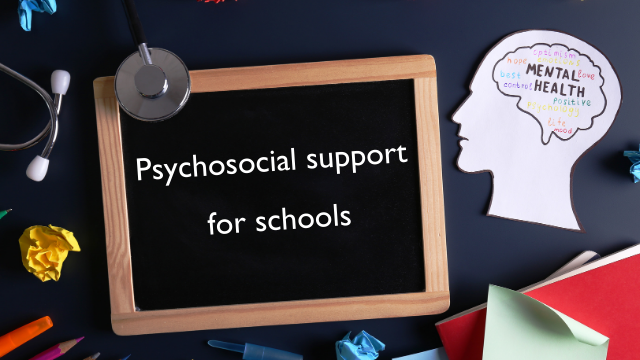
When Rhodes University started asking local school principals and management how best to assist them with the additional pressures brought on by the COVID-19 pandemic, the project team didn’t anticipate what a positive learning experience it would be for everyone involved.
“The project really brought together the idea of community psychology, and the student psychologists and project team are benefitting from it just as much as the school community,” explained Nqobile Msomi, Lecturer & Psychology Clinic Co-ordinator at the Rhodes University Department of Psychology.
Rhodes University’s Community Engagement Director, Di Hornby, first reached out to the local school principals in June. “Recognising the pressure Makhanda school leadership is under with the re-opening of schools during the pandemic, we wanted to better understand what challenges they were facing, so that we could, as a community collective, help our schools address at least some of them,” she explained. “Psychosocial support was identified as a salient issue, so we reached out to our Psychology Department to assist.”
According to Professor Charles Young, Head of Department of Psychology, “The pandemic and the lockdown to contain it have been having a major effect on the mental health of people. There are the effects of social isolation and the devastation to people's livelihoods, fear about contracting the disease, and traumatic and prolonged bereavement caused by the manner in which people have died. Research suggests that children are affected by all of this. Schools are good settings for public mental health interventions that aim to reach children.”
Prof Young is part of a committee that is coordinating efforts between the Eastern Cape universities to provide a psychosocial response to the pandemic, following a request from the Premier's Office. These efforts entail various interventions, of which the schools' intervention is just one.
After working out a school intervention strategy, the project team decided on an approach that is underpinned by the concept of mental health. “The idea is to highlight the often-neglected notion of maintaining one’s own mental health first, so that one can be in the best position to take care of others and to carry the tools and skills of mental health through to the classroom,” Msomi explained.
The first psychosocial support workshop, with an impressive attendance of over 35 participants, was largely centred on finding common issues and establishing buy-in from the principals and school management. These leaders were quick to see the value of how such psychological tools could empower and assist the educators, which formed the basis of the second workshop.
Subsequent workshops, which included attendees from NPOs, care centres and various other educational organisations, dealt with processing loss and grief and learning to adapt to the “new normal”.
“What I found interesting was the resilience factor. Several participants expressed concern that they were doing things wrong or not doing enough, but many of them had already instinctively started employing some of the coping strategies before we had even had a chance to discuss them,” Msomi stated.
“Education isn’t one dimensional. We educate holistically, so we have to consider the well-being of the pupils and of the teachers. Its fruitless having an excellent academic programme if a child is struggling with overwhelming feelings of uncertainty, fear and anxiety,” explained Hornby.
Although capacity didn’t allow for workshops to be conducted with learners, young people were far from excluded. “We simply used a different approach to access the learners,” explained Msomi. Psychology Masters students were tasked to create short videos dealing with topics such as anxiety, lack of motivation, and low mood, and these were shared with pupils through a WhatsApp group.”
Furthermore, individual psychological assessment and/or psychotherapy sessions are available for pupils on request from the Psychology Clinic.
“Our Masters students have been instrumental in the support programme, which has been a meaningful learning experience for them throughout,” Msomi stated. “Not only did this project allow them real-life experience in their discipline, but it taught them about the value and utility of community psychology principles.”
A vital thing to note, Msomi said, is the relevance of such a programme to help advocate for the inclusion of psychosocial support in all schools, as standard practice. “It is so important, that it cannot be stressed enough, given our unique South African context. People in this country are facing a number of contextual stressors. From poverty and child-headed households to gender-based violence and substance misuse. And although the pandemic has not created these issues, it has brought mental health under the spotlight and exacerbated the various challenges the people of our country already face”.
According to her, schools are a strategic site for the implementation of psychosocial support and development, whether we are undergoing a pandemic or not.
To help push for this, Msomi plans to write some papers that will shed light on the urgent need to have mental health practitioners involved in all schools. “Research can be a useful means for advocacy,” she concluded.
